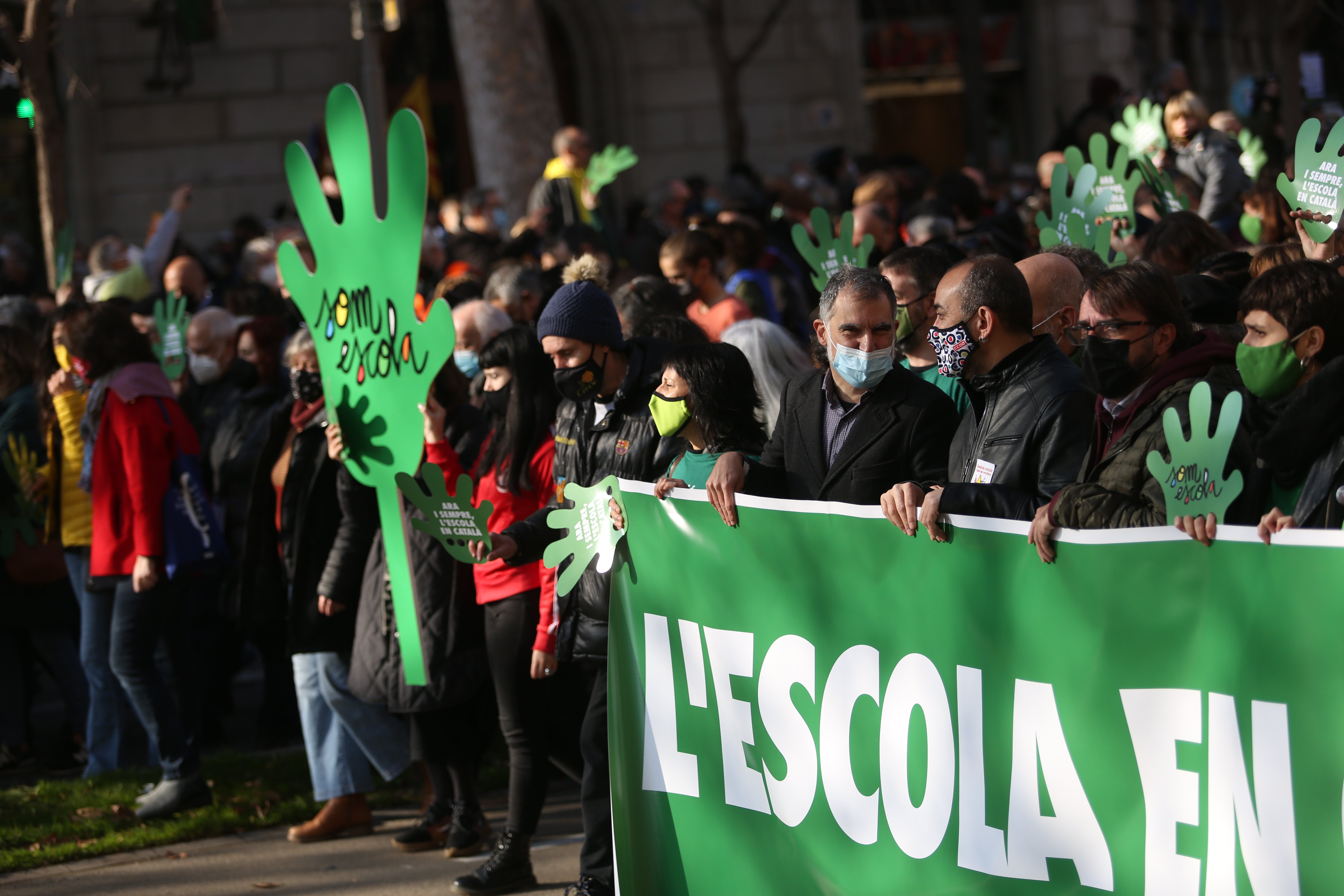"The court does not operate in a vacuum." With these words, the president of the European Court of Human Rights, Robert Spano, acknowledged on Tuesday that the court is aware of the "significance" and "context" of what he called the "Catalan cases" and assured that it will take into account its new policy of "prioritization" as it decides how to approach the appeals, mostly centred on the 2017 referendum on independence from Spain and subsequent actions against pro-independence leaders. Although the ECHR president would not be drawn on whether the cases would be dealt with urgently, Spano affirmed that the court's new strategy of being able to speed up processing of "impact cases" even if they don't involve a risk of death or ill-treatment will be considered. "We are currently in the process of deciding how to deal with these cases, and this strategy will come into play", he said.
Court's new criteria for prioritization
There are currently 12 cases related to the Catalan independence process on the table at the Strasbourg court, most of them relating to the detention and imprisonment of the Catalan pro-independence leaders. According to Spano, the court is still "examining" how to manage the appeals of the now pardoned pro-independence leaders. Without revealing whether the cases will be dealt with quickly, Spano said they will take into account the new "prioritization" criteria as they decide. Previously, the ECHR treated as urgent only those cases in which the affected person was at risk of death or ill-treatment. However, since March 2021, the ECHR has adopted a policy of speeding up some cases if it considers that they could "change or clarify" domestic or international law, if they affect "social or moral issues" or if they deal with "emerging or important human rights issues". The court may also classify as "impact cases" those which have had "outstanding domestic media coverage and/or are politically sensitive."
Catalan appeals in Strasbourg
The ECHR has four appeals on its desk against the judgment of the 2019 Supreme Court trial of 12 Catalan pro-independence leaders: those of two leading activists - the president of the Òmnium Cultural organization, Jordi Cuixart, and the former president of the ANC pressure group, Jordi Sànchez - and those of two former Catalan government ministers, Jordi Turull and Josep Rull. As well, there are three appeals related to the pre-trial detention of Rull, Sánchez and ERC leader Oriol Junqueras. There are also three cases in Strasbourg over the Constitutional Court's suspension of the Catalan Parliament's resolutions on two matters, the right to self-determination and disapproval of the monarchy. These appeals focus on the annulment of the decision by the Catalan Parliament's Bureau to admit the two motions for processing. In September 2021, the Strasbourg court rejected two appeals, centred on the police use of violence on the day of the 1st October 2017 referendum, because it saw no evidence of human rights violations.
The process in Strasbourg
The hearing procedure in Strasbourg can take years to deliver a judgement. The length of the procedure depends on the type of case and its complexity. For example, the appeal by former speaker of the Catalan Parliament Carme Forcadell against the preventive suspension of the parliamentary session after the 1st October was rejected two years after its presentation. On the other hand, an appeal against the burning of photos of the king in Girona took longer: three years. Some cases can take up to five years, but the court is trying to unravel the backlog of cases which built up a few years ago.
The first step in the procedure is for the ECHR to admit the appeal. Unlike other courts, Strasbourg does not report when it does. Even if the pardoned Catalan prisoners have received registration numbers for their appeals, it does not mean that they have been accepted for processing. Once the initial filter has been passed, the judges will have to decide whether to process the appeal urgently. They will also have to decide whether or not to deal jointly with all related appeals, as the former pro-independence prisoners filed their complaints individually. Court sources indicate that no decision has been made yet.

